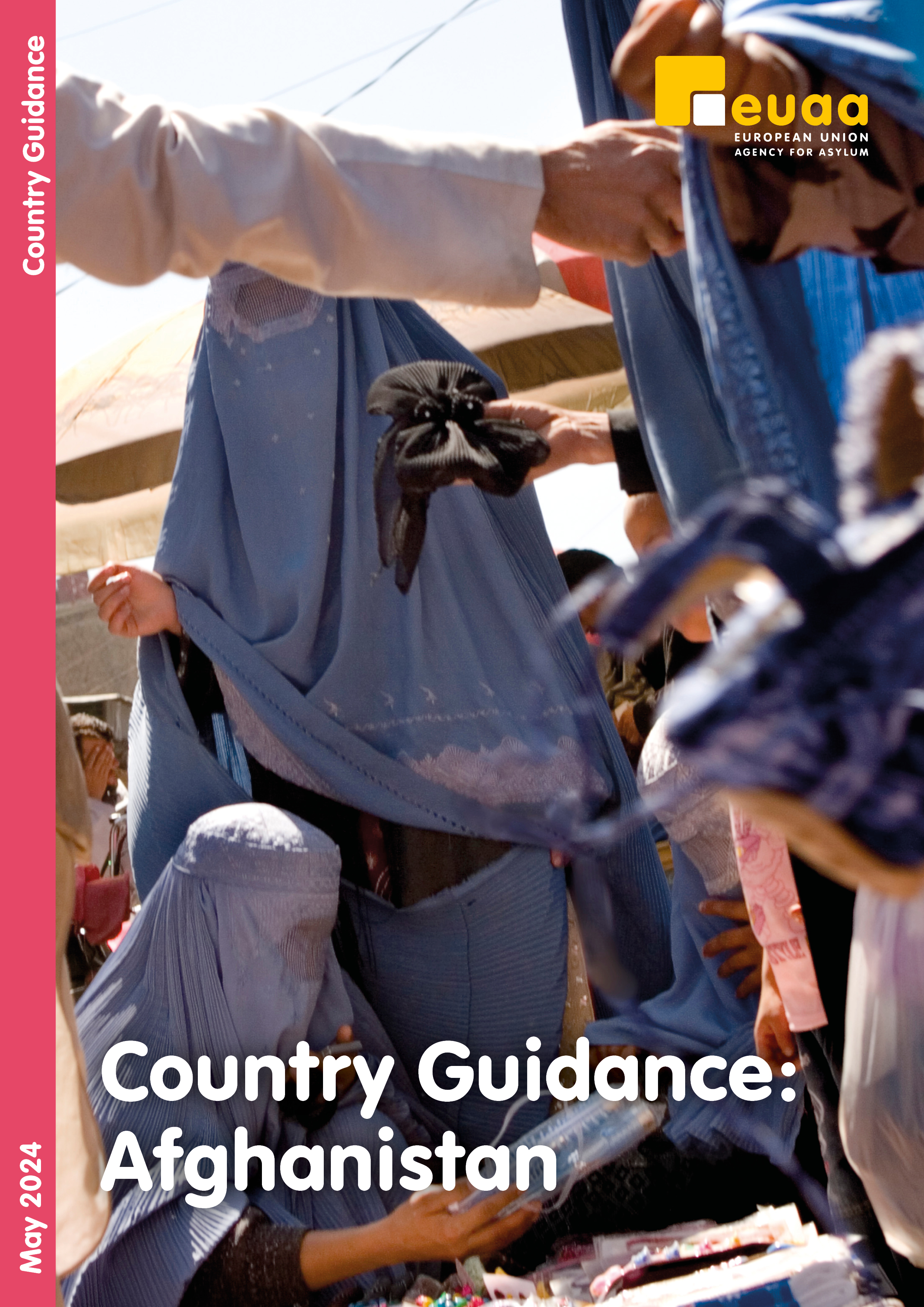
Country Guidance: Afghanistan
Publication date: 23 May 2024
The 'Country Guidance: Afghanistan' represents Member States' joint assessment of the situation in the country of origin in relation to the applicable international and EU legislation on international protection. The guidance note, accompanied by the common analysis, was agreed by the Country Guidance Network of senior policy officials in March 2024 and was endorsed by the EUAA Management Board in May 2024.
In addition to this electronic publication, the 'Country Guidance: Afghanistan' (May 2024) is available in pdf format.
The aim of the country guidance documents is to assist asylum decision-makers and policy-makers in their daily work and to foster convergence in the assessment of applications for international protection and the type of protection granted in the context of the common European asylum system. Member States have an obligation to take into account the common analysis and guidance notes when examining applications for international protection, without prejudice to their competence to decide on individual applications for international protection.
The EUAA country guidance documents are produced in accordance with Article 11 of the EUAA Regulation (Regulation (EU) 2021/2303). Learn more about the methodology and assessment approach of the common analysis and guidance notes in the 'Country Guidance: explained'.
‘Country Talks: Afghanistan’
The ‘Country Talks: Afghanistan’ were held on 13 June 2024 and were an opportunity to introduce the latest update of the Country Guidance on Afghanistan published on 23 May 2024 along with the recent EUAA COI reports on Afghanistan and to engage in a conversation driven by the participants’ interest and questions.
The PPT presentation of the event is available here.
Citation
Please cite the document as: EUAA, Country Guidance: Afghanistan, May 2024, available at https://euaa.europa.eu/country-guidance-afghanistan-2024.
© European Union Agency for Asylum (EUAA), 2024
ISBN: 978-92-9403-992-7
DOI: 10.2847/37189
Catalogue number: BZ-05-24-272-EN-Q

